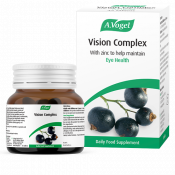An introduction to macular degeneration
The retina is vital for vision. It sits at the back of the eye and contains over a hundred million light-sensitive cells: rods, which are sensitive to light, and cones which are sensitive to colour. These cells turn light into nerve impulses which are sent along the optic nerve to the brain where a picture of what we are seeing is created.
The macula is the part of the retina which is responsible for central vision, which is what we see when we focus on an object, as opposed to peripheral vision, which allows us to see movements around us (this is also often referred to as ‘seeing out of the corner of your eye’). It is only about 5mm in diameter but contains millions of light and colour-sensitive cells that help create a picture of what is happening in the centre of your field of vision.
Macular degeneration, therefore, is the term use when the macula becomes damaged. Alternatively, the phrase ‘age-related macular degeneration’ (AMD) is also used because of the critical role that age plays in the development of this condition.
What are the symptoms of macular degeneration?
The symptoms of macular degeneration tend to develop gradually so are often not noticeable for a long time. These symptoms include:
- Blurred vision– this blurring typically only affects the very centre of your field of vision
- Blurred vision that becomes clearer in brighter light
- A black or grey blind spot in the centre of vision
- Straight lines appearing crooked or wavy
- Contrast sensitivity – you may become unable to notice slight differences in the environment around you, for example in different shades of colour, or different textures.
AMD does not cause any pain in the eye, so if you experience this symptom it is advisable to consult your doctor or optician as this is likely to be a sign of a different eye problem.
Types of macular degeneration
There are two types of macular degeneration – dry and wet.
Dry AMD is the most common form of the condition, with around 80-90% of macular degeneration patients being affected by this type. In dry form some of the light-sensitive cells in the macula begin to break down, which affects vision. This condition is indicated by yellow deposits on the macula called drusen. This type of AMD usually takes much longer to develop, so symptoms are not always immediately apparent.
Wet macular degeneration is when there is a growth of abnormal blood vessels underneath the macula. These leak blood into the retina, causing blind spots in the centre of vision as well as distortion of vision – in particular straight lines often appear wavy. This bleeding can eventually cause scarring which leads to permanent loss of vision. Wet macular degeneration can develop very rapidly.
What are the causes and risk factors of macular degeneration?
The exact cause of both of these types of macular degeneration is not yet fully understood, but it is thought that both hereditary and environmental factors play a significant role.
Researchers have identified a number of risk factors that make you more susceptible to developing age-related macular degeneration. These include:
- Age, obviously. The chances of developing macular degeneration increases with age, and it is the leading cause of severe vision loss in people over 60
- Gender – women are more likely to develop this disease than men
- History of macular degeneration in the family
- Smoking
- High blood pressure
- High cholesterol
- Obesity
- Being light skinned or having light-coloured eyes
- Over exposure to sunlight and UV rays.
Natural and herbal treatments
There isn’t a huge amount you can do to treat macular degeneration yourself, but there are steps you can take to slow its progression or reduce the risk of developing it in the first place.
Firstly, to reduce your chances of developing this condition, try to reduce the number of risk factor groups that you fall into. That means no smoking, a healthy, low cholesterol diet and wearing sunglasses to protect your eyes from harmful UV rays.
Increasing the amount of essential eye nutrients like vitamin C, beta-carotene and antioxidants can also support your general eye health. Increasing the amounts of leafy greens such as kale and spinach, as well as brightly coloured vegetables such as bell peppers, tomatoes and carrots in your diet is an easy way to get more of these essential nutrients. For a more comprehensive guide, read our article on the good foods to eat for eye health.
There is significant research to suggest that the development of macular degeneration can be slowed, and the damage it causes reduced, by your intake of lutein and zeaxanthin.1
One great source of lutein and zeaxanthin is our own Vision Complex. In addition to these nutrients, it contains other essential eye nutrients such as zinc and beta-carotene. These nutrients are naturally sourced from Blackcurrants and Marigold, making them easier to absorb than synthetic versions.
Conventional treatment
There currently isn’t a cure for dry macular degeneration. Many doctors recommend natural treatments to prevent or slow the progression of the condition, such as controlling diet. Your doctor may also be able to prescribe specific supplements that contain useful nutrients.
There are some treatments for wet macular degeneration. These include laser surgery to seal the leaking blood vessels. However, this method can also destroy healthy tissue and can damage vision, so it is important to weigh up the risks and the benefits.
Wet macular degeneration can also be treated with injections of anti-VEGF drugs: VEGF stands for ‘vascular endothelial growth factor’. These are injected directly into the eye to slow the growth of abnormal blood vessels. For effective results repeated injections are required.
References
1 BBC 'Trust Me, I'm a Doctor' series - Can I improve my eyesight?
See also our blog post discussing the BBC's findings.








